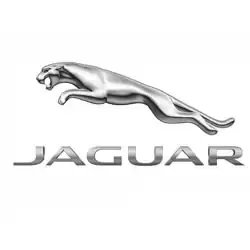Jaguar XKR Tire Pressure
Most common recommended tire pressure for Jaguar XKR can range from 33 psi to 36 psi depending on year of production, trim and OEM tire size, but it maybe different for older models. It is imperative to confirm the exact tire inflation for your Jaguar XKR to ensure safety on the road. Always refer to your vehicle owner's manual for the correct tire pressure designated by vehicle's manufacturer.
Select your Jaguar XKR production year to see its recommended tire inflation.
| Model Year | Front Tires | Rear Tires |
|---|---|---|
| 2015 Jaguar XKR | 33 psi | 36 psi |
| 2014 Jaguar XKR | 33 psi | 36 psi |
| 2013 Jaguar XKR | 33 psi | 36 psi |
| 2012 Jaguar XKR | 33 psi | 36 psi |
Recommended Tire Pressure for Jaguar XKR
Maintaining the recommended tire pressure for a Jaguar XKR is paramount for several critical reasons that directly impact safety, performance, and economy. Adhering to the manufacturer's specifications ensures optimal grip between the vehicle and the road surface, which is vital for maintaining steering precision and stability at high speeds, characteristics intrinsic to the driving experience of a performance-oriented car like the XKR. Furthermore, proper tire inflation plays a pivotal role in optimizing fuel efficiency as under-inflated tires increase rolling resistance, which in turn requires more fuel to maintain the same speed. Conversely, over-inflated tires can lead to reduced contact area with the road, diminishing the effectiveness of braking and accelerating forces, and potentially causing uneven tire wear. Uneven or accelerated tire wear is not only financially burdensome due to the need for premature replacements, but can also compromise the vehicle's handling and safety. Therefore, regularly checking and adjusting the Jaguar XKR's tire pressure to the recommended levels is a straightforward yet crucial maintenance task that ensures the vehicle operates within its optimal performance parameters, maximizes safety for all occupants, and helps in achieving better fuel economy and longer tire life, ultimately preserving the vehicle's value and performance legacy.

All listed guides, data and/or calculations are for informational purposes only. TirePressure.com does not warrant or make any representations regarding the accuracy of or the results of the use of this information. Always refer to vehicle owner's manual for the correct tire pressure configuration.